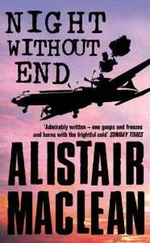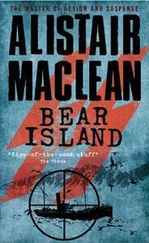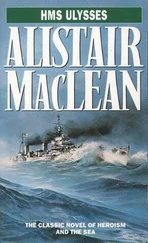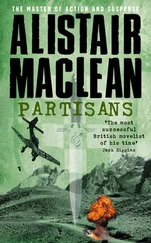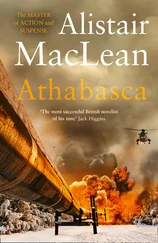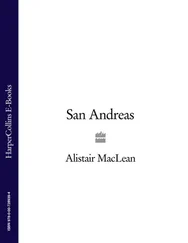Alistair MacLean - Breakheart Pass
Здесь есть возможность читать онлайн «Alistair MacLean - Breakheart Pass» — ознакомительный отрывок электронной книги совершенно бесплатно, а после прочтения отрывка купить полную версию. В некоторых случаях можно слушать аудио, скачать через торрент в формате fb2 и присутствует краткое содержание. Жанр: Старинная литература, на английском языке. Описание произведения, (предисловие) а так же отзывы посетителей доступны на портале библиотеки ЛибКат.
- Название:Breakheart Pass
- Автор:
- Жанр:
- Год:неизвестен
- ISBN:нет данных
- Рейтинг книги:5 / 5. Голосов: 1
-
Избранное:Добавить в избранное
- Отзывы:
-
Ваша оценка:
- 100
- 1
- 2
- 3
- 4
- 5
Breakheart Pass: краткое содержание, описание и аннотация
Предлагаем к чтению аннотацию, описание, краткое содержание или предисловие (зависит от того, что написал сам автор книги «Breakheart Pass»). Если вы не нашли необходимую информацию о книге — напишите в комментариях, мы постараемся отыскать её.
Breakheart Pass — читать онлайн ознакомительный отрывок
Ниже представлен текст книги, разбитый по страницам. Система сохранения места последней прочитанной страницы, позволяет с удобством читать онлайн бесплатно книгу «Breakheart Pass», без необходимости каждый раз заново искать на чём Вы остановились. Поставьте закладку, и сможете в любой момент перейти на страницу, на которой закончили чтение.
Интервал:
Закладка:
The door leading to the front platform opened and Banlon and Rafferty hurried in, accompanied by a blast of freezing air and a thick swirl of snow, and quickly closed the door. They looked whitefaced and exhausted. Banlon yawned mightily, politely covering his mouth with his hand; one does not yawn in the presence of governors and colonels. He yawned again, uncontrollably, and said: 'Well, that's it, then. Colonel. We lie down or we fall down.'
'You've done a fine job, Banlon, a splendid job. I won't forget to report this to your Union Pacific employers. As for you, Rafferty, I'm proud of you.' Claremont considered briefly. 'You can have my bunk, Banlon; Rafferty, you have the Major's.'
'Thank you.' Banlon yawned a third time. 'One thing. Colonel. Somebody's going to have to keep the steam up.'
'Seems a waste of fuel. Can't you just let the fire out and light it again?'
'No way.' The emphatic shake of Banlon's head precluded any argument. 'Relighting would waste another couple of hours and use just as much fuel as it would cost to keep steam up. But that doesn't matter. What matters is that if the fires go out and the water in the condenser tubes freezes – well. Colonel, it's still a mighty long walk to Fort Humboldt.'
Deakin rose stiffly to his feet. 'I'm not much of a walker. I'll go.'
'You?' Pearce had also risen, his face at once suspicious. 'What suddenly makes you so cooperative?'
'I don't feel the slightest bit co-operative; the last thing I want to do is to co-operate with any of you lot. But it's my skin as well as yours – and you all know by now how much I cherish my own skin. Also, Marshal, I have very delicate feelings – I can sense I'm not very popular here. And I'm cold – this is a very draughty spot – while it will be nice and warm in the cab. And I'd rather not spend the rest of the night watching the lot of you drinking whisky. And I'd feel safer the further I am from you – meaning you, Pearce. And I'm the only person who can be trusted to go – or had you forgotten, Marshal, that I'm the only person aboard above suspicion?'
Deakin turned and looked enquiringly at Banlon, who in turn looked at Colonel Claremont. Claremont hesitated, then nodded.
Banlon said: 'Rake the fire-box bed every halfhour. Feed in enough fuel to keep the pressure gauge needle between the blue and the red. If it goes over the red, you'll find the steam release valve beside the gauge.'
Deakin nodded and left. Pearce looked uneasily after him, then turned to Claremont.
'I don't like it. What's to stop him from uncoupling the locomotive and driving off himself? We all know that scofflaw will stop at nothing.'
'This is to stop him, Marshal.' Banlon held out the heavy key. 'I've locked the brake wheel. Like to take charge of it?'
'I would indeed.' Pearce took the key, sat down, relaxed and reached for his glass. O'Brien rose at the same moment, nodded to Banlon and Rafferty.
'I'll show you men where to sleep. Come on.'
The three men left the day compartment and O'Brien led the way towards the after end of the second coach. He showed Banlon into Claremont's compartment, then led Rafferty into his own. He waved a hand and said: 'This suit you?'
While Rafferty looked around in dutiful respect O'Brien swiftly extracted a bottle of whisky from a cupboard and held it out in the passageway where it couldn't be seen. Rafferty said: 'Of course. Thank you very much, sir.'
'Fine. I'll say good night, then.' O'Brien closed the door and retraced his steps until he reached the galley. Without even the courtesy of a knock he entered and closed the door behind him. The galley was a tiny place, not more than six by five, and when the space taken up by the cord-fuelled cooking stove, the cupboards for pots, pans, crockery and food were taken into account, there was barely room for the cook to turn around in, far less swing a cat: but Carlos and Henry, each perched on a tiny stool, did not appear to find the accommodation unduly cramped. As O'Brien entered they looked up, each man wearing his habitual expression, Henry his look of lugubrious near-despair, Carlos his dazzling beam.
O'Brien placed the bottle on the tiny worktable. 'You're going to need this. And the warmest clothes you can find. It's a bitter night out. I'll be back shortly.' He looked round curiously. 'Wouldn't you have a lot more room in your own quarters?'
'Yes, indeed, Mr O'Brien.' Carlos smiled hugely and indicated the stove – it was too hot to touch. 'But we wouldn't have this. Warmest place on the train.'
The second warmest place was unquestionably the locomotive cab. At that moment it was quite a few degrees colder than it would have been normally because of the heavy gusts of driving snow that swirled almost continuously into it; but the fierce red glow from the opened fire-box, which rendered the two oil-lamps momentarily superfluous, at least gave the illusion of warmth. But Deakin, unquestionably, was feeling no cold at all; sweat glistened on his face as he stoked the fire-box.
He fed in a final baulk of cordwood, straightened and glanced at the steam-gauge. The needle was close to the red mark. He nodded to himself in satisfaction and closed the fire-box door. The illumination in the cab was suddenly much reduced and still further so when Deakin unhooked one of the lamps and took it with him into the tender, which was still about two-thirds full of cordwood. He set the lamp on the floor and began to work almost feverishly, transferring the wood from the right to the left side of the tender.
Fifteen minutes later his face no longer glistened with sweat; it was copiously covered with it and this despite the fact that the temperature in the fully exposed tender must have been close on freezing point. But then, shifting heavy baulks of timber at high speed is no light work and Deakin had already transferred at least half of the remaining contents of the tender from the right to the left. He straightened wearily, rubbed an obviously aching back, turned away, moved into the cab and examined the steam-gauge. The needle, during his exertions, had fallen below the blue line. Hurriedly, Deakin opened the fire-box door, raked through the bed, threw some more cordwood into the hungry heart of the fire-box, closed the door and, without even glancing at the steam-gauge, returned to his back-breaking task in the tender.
He had removed no more than twenty baulks when he stopped work abruptly and brought the oil-lamp to examine the remaining pile of cordwood more closely. He set the oil-lamp to one side and threw the next dozen baulks to the left before reaching for the lamp again. He sank slowly to his knees, the normal lack of expression on his face replaced by a hard and bitter anger.
The two men lying huddled together were unmistakably dead, literally frozen stiff. Deakin had removed sufficient cordwood to reveal their upper bodies and faces. Both men had ghastly head wounds, both men wore the uniforms of officers of the United States Cavalry, one a Captain, the other a Lieutenant. Beyond a doubt Claremont's two missing officers, Oakland and Newell.
The anger had left Deakin's face: for a man who lived the life he did, anger, he had long discovered, was an emotion he couldn't afford. He stood and swiftly began to replace the cordwood, stacking it in the neat precise form in which he had found it until it had all been returned to its original position. Understandably, because of this necessity for precision and because of his rapidly increasing tiredness which was now but one stage removed from exhaustion, it took him twice as long to restack the pile as it had taken him to dismantle it.
Finished, he again checked the steam-gauge to find that the needle had now fallen well below the blue line, then again opened the fire-box door to reveal a red glow inside which was now very dull indeed. Wearily, Deakin resumed the stoking and thrust into the box every last baulk of timber it would accommodate. Again he closed the door, again he did not examine the gauge. He pulled his collar high, his hat low and swung down on the track-side into the icy breath-catching driving whiteness of what was now a near-blizzard.
Читать дальшеИнтервал:
Закладка:
Похожие книги на «Breakheart Pass»
Представляем Вашему вниманию похожие книги на «Breakheart Pass» списком для выбора. Мы отобрали схожую по названию и смыслу литературу в надежде предоставить читателям больше вариантов отыскать новые, интересные, ещё непрочитанные произведения.
Обсуждение, отзывы о книге «Breakheart Pass» и просто собственные мнения читателей. Оставьте ваши комментарии, напишите, что Вы думаете о произведении, его смысле или главных героях. Укажите что конкретно понравилось, а что нет, и почему Вы так считаете.

